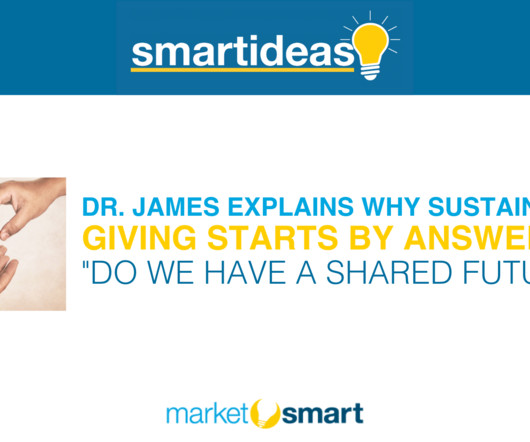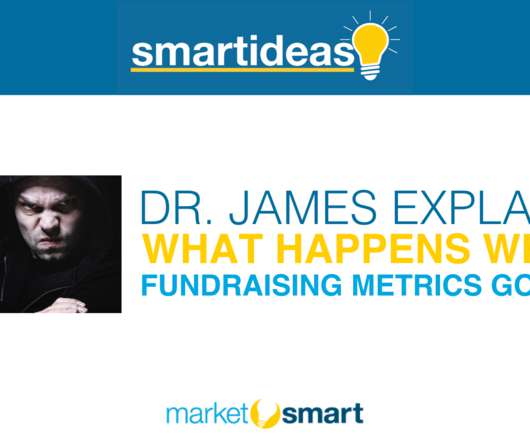How to Cultivate Awe, Gratitude, Altruism and Meaning to Significantly Boost Nonprofit Fundraising
Clairification
NOVEMBER 11, 2024
Philanthropy is about reciprocal awe, gratitude, altruism and purpose. When this feeling creeps in, this is a time for you to rededicate yourself to your fundamental role as a philanthropy facilitator. Donors can help you get there. You can help them find it. Please allow that to sink in. What is that role?












Let's personalize your content